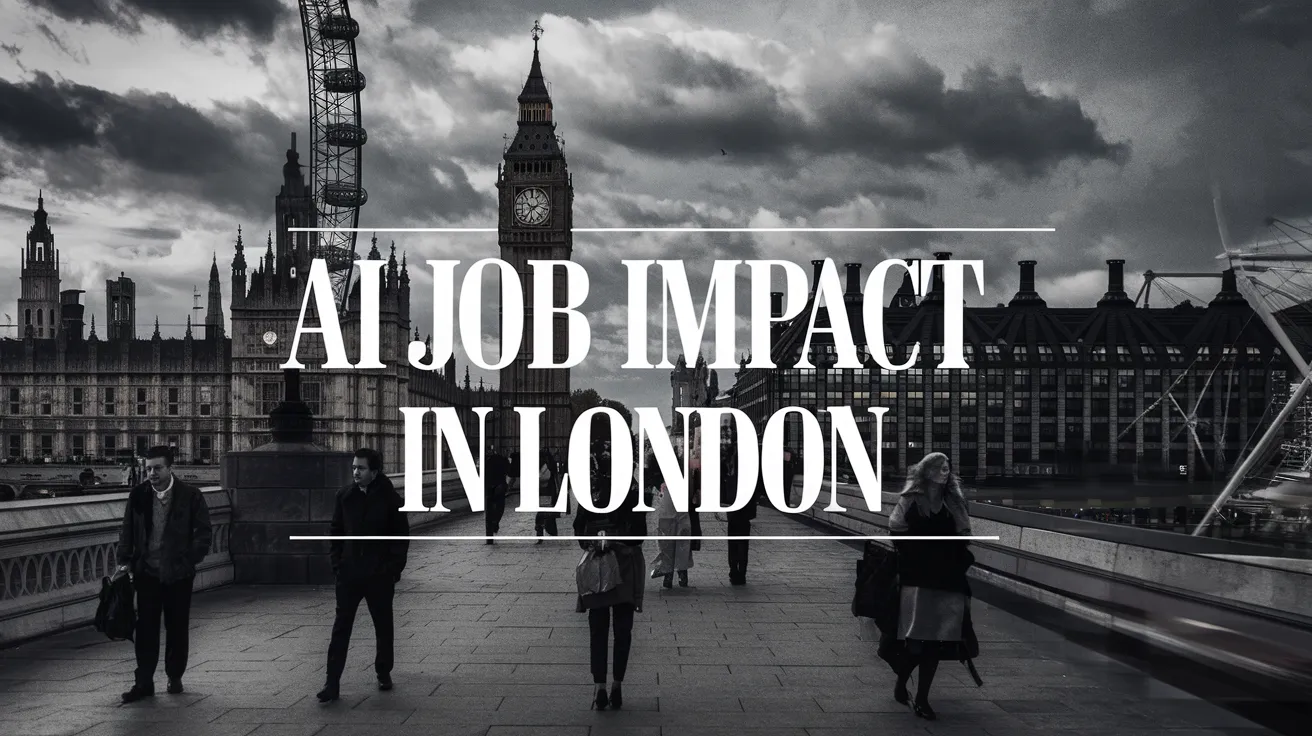AI Job Impact in London

Artificial Intelligence (AI) is poised to revolutionize the workplace, with research indicating that nearly a million jobs in London could be significantly transformed. This transformation is particularly relevant for roles characterized by repetitive or automated tasks.
The research conducted by LiveCareer UK highlights concerning statistics: over 200,000 telemarketers, 150,000 bookkeepers, and more than 95,000 data entry specialists stand to be impacted. Fast food workers, warehouse staff, retail cashiers, paralegals, and proofreaders are among other professions identified as vulnerable.
Consultancy firm McKinsey corroborates these findings, noting a striking 38% decline in job advertisements for positions susceptible to AI automation when compared to three years ago. This raises concerns about workforce stability, especially as women are identified as disproportionately affected, occupying many roles poised for change. Jasmine Escalera from LiveCareer underscores the need for companies to address this challenge, advocating for dialogue about how employees can adapt and complement the evolving technology.
In the healthcare sector, positive implementations of AI illustrate its potential to enhance, rather than replace, jobs. The NHS Trust has adopted AI tools to assist personnel, using robotic systems to dispense medications efficiently. At Queen Elizabeth Hospital, AI analyzes data to optimize medicine usage based on seasonal demands. Rachel Knight, the chief pharmacist, emphasizes how AI aids in identifying patterns and streamlining workflows, ultimately leading to safer patient care.
The government has integrated AI into a ten-year NHS strategy, focusing on educating staff about its benefits. Knight, also pursuing a digital apprenticeship, acknowledges the importance of equipping teams with AI-related skills to lead effectively through forthcoming changes.
Zeinab Hussain, a digital health leader at Lewisham and Greenwich Trust, highlights that AI is designed to handle mundane tasks, thereby enriching the quality of patient care rather than replacing jobs. She views upskilling existing staff as essential, given the persistent demand for healthcare services.
Beyond healthcare, industries across London are grappling with AI’s imminent influence. Research by McKinsey reveals that one-third of midsize businesses have adopted AI technologies. However, this shift is paired with a worrying 31% decline in overall job advertisements since three years ago, indicative of potential skill gaps that could impact workforce sustainability.
Major companies like Amazon, JP Morgan, Microsoft, and Ford forecast significant changes. Ford’s CEO Jim Farley warns that AI could replace half of white-collar jobs in the U.S. This points to a broader concern regarding job security and the need for retraining.
The tech sector is at the forefront of AI adoption. Recent initiatives by Snap, including workshops with the Royal College of Art, focus on integrating AI into design processes. Arron, a graphic design student, advocates for the incorporation of AI as a supportive tool, calling for regulation to address its deployment in creative fields. Meanwhile, Qi Pan, Director of Computer Vision Engineering at Snap, argues that AI enhances productivity rather than eliminating jobs, leading to greater efficiency and creativity.
The discourse around AI’s role in shaping the future workforce underscores the pressing need for strategic adaptation in various industries. Emphasizing collaboration between technology and human ingenuity may hold the key to navigating this transformative era.